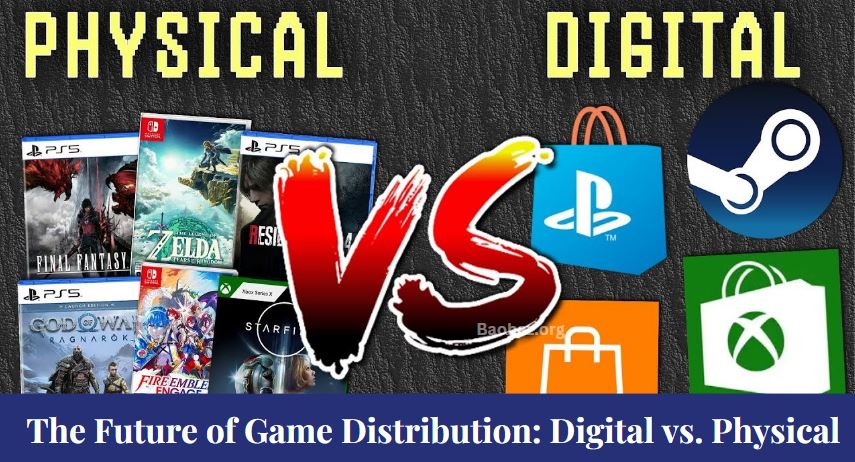In the ever-evolving landscape of gaming, the question of how games are distributed has become increasingly pertinent. With the advent of digital distribution platforms, such as Steam, Epic Games Store, and PlayStation Network, traditional physical distribution methods are facing stiff competition. This article delves into the ongoing debate between digital and physical game distribution, exploring the advantages, challenges, and future trends shaping the gaming industry.
The Rise of Digital Distribution
Convenience and Accessibility
One of the primary appeals of digital distribution is its unparalleled convenience. slot pay4d Gamers can instantly purchase and download their favorite titles from the comfort of their homes, eliminating the need to visit brick-and-mortar stores or wait for physical copies to arrive in the mail.
Environmental Impact
Digital distribution also boasts environmental benefits, reducing the production of plastic packaging and transportation emissions associated with physical discs. As sustainability becomes an increasingly important consideration for consumers, the eco-friendly nature of digital distribution is a significant selling point.
The Persistence of Physical Distribution
Tangibility and Collectibility
Despite the rise of digital distribution, physical copies of games continue to hold sway over certain segments of the gaming community. For many enthusiasts, there’s a tactile pleasure in owning a physical disc or cartridge, not to mention the appeal of limited edition collector’s items.
Market Dynamics
Furthermore, physical distribution remains a dominant force in regions with limited internet infrastructure or where digital penetration is low. In such markets, retail outlets play a crucial role in reaching consumers who may not have access to high-speed internet or digital payment methods.
Challenges Faced by Physical Distribution
Limited Availability
One of the drawbacks of physical distribution is the limited availability of certain titles, particularly older or niche games. As retailers prioritize shelf space for new releases and popular franchises, lesser-known titles may struggle to find a place in stores, leading to decreased visibility and sales.
Storage and Maintenance
Physical copies also require dedicated storage space and proper maintenance to prevent damage or deterioration. For collectors with extensive libraries, this can pose logistical challenges and additional expenses in terms of shelving, protective cases, and cleaning supplies.
Advantages of Digital Distribution
Instant Access
Digital distribution offers unparalleled convenience, allowing gamers to access their entire library of titles with a few clicks. Whether on a console, PC, or mobile device, players can instantly download and play their favorite games without the need for physical media or lengthy installation processes.
Lower Costs
In addition to convenience, digital distribution often results in lower costs for both developers and consumers. Without the need for physical production, distribution, and retail markup, digital games can be priced more competitively, offering savings to players while maintaining profitability for developers.
The Evolution of Gaming Platforms
Console and PC Markets
The shift towards digital distribution has reshaped the gaming landscape, with consoles and PCs increasingly emphasizing online storefronts and digital libraries. Subscription services, such as Xbox Game Pass and PlayStation Now, offer access to a vast library of titles for a monthly fee, further incentivizing digital adoption.
Mobile Gaming
The rise of mobile gaming has been instrumental in driving the popularity of digital distribution, with app stores serving as the primary marketplace for smartphone and tablet games. Free-to-play models, supported by microtransactions and in-game ads, have democratized access to gaming while generating substantial revenue for developers.
Digital Rights Management (DRM) Concerns
Ownership and Control
Despite its benefits, digital distribution raises concerns about ownership and control. Unlike physical copies, which can be resold or traded freely, digital games are often tied to specific accounts or platforms, limiting consumer rights and freedoms.
Security Risks
Moreover, digital distribution introduces security risks such as piracy, account hacking, and data breaches. Developers and platform holders must implement robust DRM measures to protect intellectual property and safeguard user information from unauthorized access.
Future Trends in Game Distribution
Hybrid Models
As the poker online gaming industry continues to evolve, we can expect to see hybrid models that combine elements of both digital and physical distribution. Limited edition physical releases may include exclusive bonus content or collectible items, appealing to collectors while maintaining the convenience of digital access.
Emerging Technologies
Advancements in technology, such as cloud gaming and blockchain-based platforms, hold the potential to revolutionize game distribution in the future. Cloud gaming services offer the promise of streaming high-quality games directly to any device with an internet connection, while blockchain technology enables secure digital ownership and trading of in-game assets.
Conclusion
In conclusion, the future of game distribution is a dynamic landscape shaped by the interplay of digital innovation and traditional market forces. While digital distribution offers unparalleled convenience and accessibility, physical copies continue to hold value for collectors and enthusiasts. As the industry evolves, hybrid models and emerging technologies will play a pivotal role in shaping the way games are distributed and consumed.

